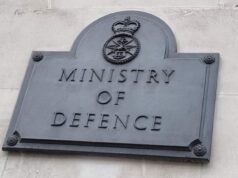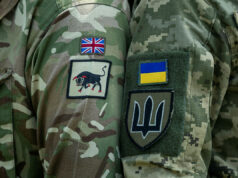Newly released MI5 files from the National Archives reveal that British intelligence monitored potential connections between French government interests and nationalist movements in Scotland and Wales during the 1960s.
The files, signed by then-MI5 head Martin Furnival Jones, shed light on Cold War-era concerns over separatist movements, foreign influence, and domestic extremism.
One letter dated May 1968, addressed to a senior official, notes that MI5 was “continuing our enquiries into the possible links between Welsh and Scottish extremist elements and the French Government.”
However, it adds, “We have no evidence that any German political party has affiliations with Scottish or Welsh nationalist bodies.”
Free Wales Army and Quebec Separatists
The files also delve into claims by Julian Cayo-Evans, the self-proclaimed leader of the Free Wales Army (FWA). In an interview with a Canadian journalist, later published in the Toronto Globe and Mail and the Gazette, Cayo-Evans alleged that “links exist between the F.W.A. and the Quebec Separatists.”
He claimed that Quebec-based groups provided “training in weapons and explosives to a member [of the FWA], Williams,” who had recently been charged with illegal possession of explosives in Caernarvonshire.
MI5 treated Cayo-Evans’ claims cautiously, describing him as “given to exaggeration in the interests of publicity.” The document concludes, “We are inclined to treat this claim with reserves.”
Communist Party Links Highlighted
The files also highlight the Communist Party’s potential involvement in nationalist movements, stating that “the Communist Party Scottish and Welsh District Secretaries are members of the Political Committee.”
While no direct evidence linked these officials to extremist activities, their positions within both nationalist and leftist circles likely drew MI5’s attention.
Broader Cold War Concerns
The broader context of these investigations reflects the Cold War anxieties of the time. Nationalist movements in Scotland and Wales were seen as potential avenues for foreign powers to destabilise the UK. MI5’s scrutiny of French involvement in particular aligns with concerns about Breton separatists in Brittany, who were suspected of maintaining ties with their counterparts across the Celtic nations.
The documents provide an invaluable glimpse into MI5’s operations during a period of heightened tension and reveal how domestic separatist movements intersected with global geopolitics.
As one document notes, “I am copying this to Denis Greenhill. I have also sent a copy of this letter and yours to Philip Allen for the information of the Home Secretary,” underscoring the high-level attention given to these investigations.
The Release
The National Archives have made available a selection of previously top secret files from MI5. The records cover a range of subjects predominantly from the organisation’s early years before the First World War, up until the mid-1970s.
The release reveals new details in the cases of the Cambridge spies Kim Philby, Anthony Blunt, and John Cairncross, including their confessions, and also sheds light on related cases including Constantin Volkov, and Philby’s first wife Litzi.
Also included are historical reports and other papers from 1909 until 1959, a wartime ‘watchers’ guide offering surveillance advice to MI5 officers, papers related to investigations into the Communist Party of Great Britain, and communications between MI5 and the FBI.
Image ‘Txllxt TxllxT’, CC BY-SA 4.0 <https://creativecommons.org/licenses/by-sa/4.0>, via Wikimedia Commons.













Talk about bad news for British Intelligence what with Philby, Blunt and the Queen but it’s hardly surprising given that even Ian Fleming didn’t know what a secret agent really was! Ian Fleming dubbed James Bond a “secret” agent yet simultaneously depicted 007 as an employee on MI6’s payroll. Given Ian Fleming’s background in British naval intelligence in World War 2, that contradictory classification of 007 was about as absurd as calling a Navy Seal a Coastguard as noted in this news article – https://theburlingtonfiles.org/news_2024.09.13.php. If only the Cambridge Five had been able to read Bill Fairclough’s fact based spy thriller, Beyond Enkription in TheBurlingtonFiles series, they may not have been caught!
You do realise James Bond wasn’t supposed to be a history lesson. If it had been, it wouldn’t have been the great fictional success that it has been, plenty of other books that are more centred around more realistic portrayals of Cold War Spy Networks. Indeed when he wrote those books it’s highly unlikely that considering his own recent past writing a truly accurate explanation about what secret agents were and did was going to be possible even if he wanted to do that.
Yes. SIS Intelligence staff that are assigned overseas, often under diplomatic cover, are Officers, not Agents. Agents are the people we bribe and pay to give HMG information.